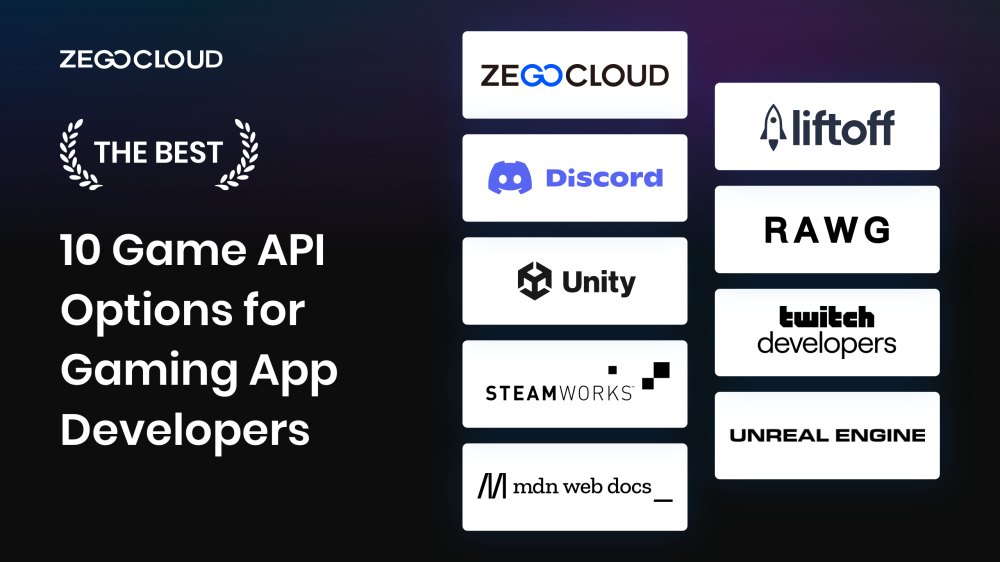Gaming is a unique form of digital entertainment that allows users to interact with other users in a virtual world. The main objectives are to compete in one-on-one or multiplayer battles or even complete gaming challenges or tasks. Thus, the need for gaming apps is significantly rising. Meanwhile, game API is a perfect solution for all developers. This article will discuss 10 essential game APIs for you.
What is Game API?
API is an Application Programming Interface that leverages built-in resources, code blocks, and tools to help developers build applications without scratch coding. Similarly, a Game API combines different rules and protocols to allow developers to utilize ready-made functionalities of other games. This way, they can acquire and integrate remarkable gaming frameworks to design and build custom games as required.
Thus, there is no need to establish a complete gaming framework when APIs can provide all without utilizing resources. After all, specialized tools and functions cover a broad perspective of game development modules, including networking, graphics rendering, input handling, physics simulation, and audio processing.
Why Do You Need to Use Game API Instead of Building from Scratch?
Every business has unique requirements that persist in developing their custom applications from scratch. The development teams usually need dedicated coding techniques to fulfill the requirement checklist. Meanwhile, scratch coding may seem a trusted option, but it can consume many resources.
In this situation, using a video game API could be helpful. Following are the reasons that will help you understand why you should use an API:
- Simplified Development: APIs access and consume data from different internet resources that use dedicated code blocks and toolkits. Thus, developers can integrate APIs into their systems to build custom applications.
- Flexible and Scalable: By using APIs, you can add flexibility to your application by adding or removing functions or getting features customized. There’s also a scalable layer of abstraction to allow the upgradation or editing of individual components.
- Third-Party Integrations: You can integrate third-party technologies and services into your system using APIs. This way, your application will become extensive with enhanced functionalities like language translation support, chat support, video, etc.
- Reduced Time-To-Market: With access to APIs, developers can integrate upgraded built-in functionalities into their existing applications. Meanwhile, the integrations get instantly processed to custom design applications in a quick time. Hence, the time-to-market also decreases to provide a competitive edge.
Best 10 Game APIs for Gaming App Developers
With the evolution of technology, the virtual gaming community is also rising. This means there is also a rise in the number of challengers, multiplayer, and arcade gamers; hence, the industry needs more competitive games. Making games from the start can consume time and money. Using a game SDK service can help overcome this situation with reliability. Discover 10 popular gaming SDK services here:
1. ZEGOCLOUD Game API
The in-game video chat app facility from ZEGOCLOUD game API/SDK is exactly what you need to add extensive chat communication support to your games. The fact is that chat communication is vital for gamers to establish meaningful interactions during intensive gameplay battles that enhance player engagement. With the facility of one-on-one or group video chats, communication just becomes easier using video chat API.
In fact, users can also check message history, send offline messages, share gaming attachments, or create public channels. The possibility for push notification is also there if your partner is busy with games and avoiding your text message. All the messages get transmitted with 99.99% accuracy and low latency of 200ms.
ZEGOCLOUD APIs for games are free to use for up to 100 monthly active users. In contrast, the paid plan allows up to 10,000 monthly active users for $449. The supported platforms include iOS, Android, Java, Flutter, React Native, Windows, and macOS.
Pros:
- Provides clear audio and video communication for in-game chat and streaming.
- Optimized for real-time interactions, ensuring minimal delay.
- Compatible with various platforms including iOS, Android, and Web.
- Includes screen sharing, live chat, and collaborative whiteboards.
- Can support large numbers of concurrent users.
Cons:
- Integration complexity may require significant effort to integrate into existing game frameworks.
- Premium features may be expensive for small developers.
- Learning curve requires time to learn and implement all features effectively.
2. Discord API
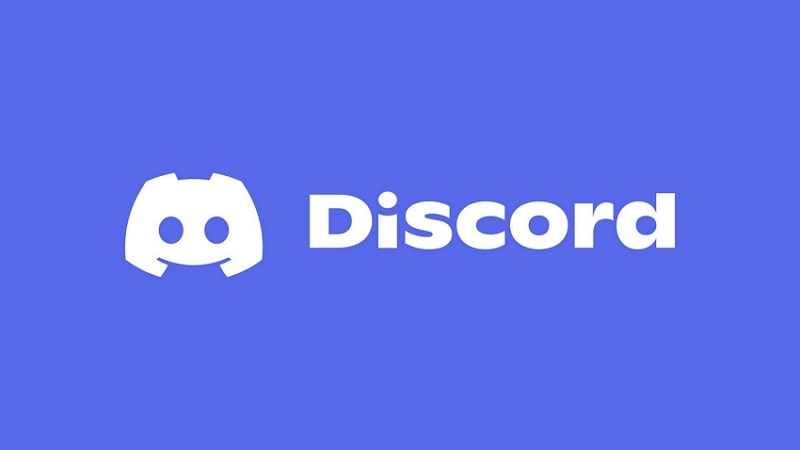
Discord game API provides dedicated assistance to extend communication support within gaming applications. After all, this gaming API allows gamers to connect via real-time chat and audio support within a group or private settings. So, Discord API simplifies gaming communication, whether it’s about text-based conversations or voice interactions among players.
Meanwhile, users can create, modify, or manage servers that offer a dedicated platform to connect during games. The API also allows gamers to set their status online, idle, or offline. Hence, other games would be aware of every player’s current status. The Discord API has been used in different games like Warframe, Among Us, Destiny 2, Fortnite, Minecraft, and more.
Pros:
- Popular platform widely used by gamers, providing instant access to a large user base.
- Rich features include voice, video, text chat, and bots for automation.
- Works across mobile, desktop, and web applications.
- Excellent for creating and managing gaming communities.
Cons:
- Potential issues with data privacy and control.
- Free tier has limitations on server capacity and features.
- May experience latency or downtime during peak usage.
3. Unity API

Known as a part of the Unity game development engine, Unity API offers developers different tools and functionalities to develop fully exciting yet interactive games. Meanwhile, you can easily personalize your games through 2D and 3D graphics rendering, physics simulation, object manipulation, and animation systems. In fact, you can also adjust input management with hardware devices like consoles, keyboards, etc.
Meanwhile, the developers can conveniently modify the gameplay mechanics or adjust the gaming interface. Moreover, extensive AI functionality allows the implementation of intelligent NPCs or the development of automated character interactions. Unity API has so far been used in games including Pokémon GO, Hearthstone, Genshin Impact, and more.
Pros:
- Comprehensive toolset includes everything needed for game development, from physics to graphics.
- Supports multiple platforms including PC, console, mobile, and VR.
- Access to a large marketplace of assets and plugins.
- Strong developer community and extensive documentation.
Cons:
- Can be complex and overwhelming for beginners.
- May have performance issues if not optimized properly.
- Advanced features and enterprise support require paid licenses.
4. Pointer Lock API
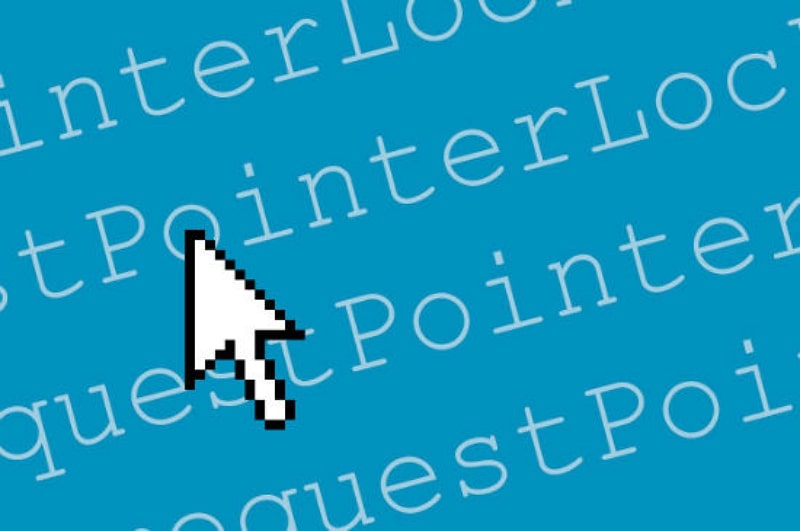
Pointer Lock API is a commonly used game API for implementing first-person game controls. Hence, the developers can use this API by locking the mouse cursor and then capturing mouse movement to manage the player’s view. Concurrently, the camera movement becomes easy to adjust during the games. This type of API has use cases for developing first-person shooting games like Counter-Strike, IGI, etc.
Concurrently, there is also a possibility to implement camera rotation and look controls following the mouse-aimed interactions. So once the enemy is within your zone, you must be proactive with good reflexes. That’s where looking around becomes more accessible. Subsequently, the Pointer Lock API is also essential to control vehicles that require shooting at enemy targets during the drive.
Pros:
- Provides better control for first-person and immersive games.
- No need for additional software, works directly in web browsers.
- Simplifies the handling of mouse events for gaming applications.
Cons:
- Not supported by all browsers.
- Potential misuse in creating misleading or harmful web applications.
- Can lead to poor user experience if not implemented correctly.
5. Vungle API

By using Vungle API, developers can add in-app advertising within the games to help monetize and generate earning opportunities. After all, developers can integrate a unique game SDK service network into their games to display ads. Meanwhile, different types of ads could be applied, including rewarded, video, and interstitial ads.
Apparently, developers can also utilize analytics and reporting facilities that allow them to monitor the statistical performance of their ads. There are also acquisition services for allowing developers to promote their games. Casual games, strategy games, RPGs, and other similar game types use Vungle API to deliver ads.
Pros:
- Effective tool for in-app advertising and revenue generation.
- Delivers high-quality video ads that engage users.
- Provides detailed analytics and performance metrics.
Cons:
- Ads can disrupt the gaming experience and annoy users.
- Requires effort to integrate and optimize ads within games.
- Takes a share of the ad revenue, which may be significant for small developers.
6. RAWG
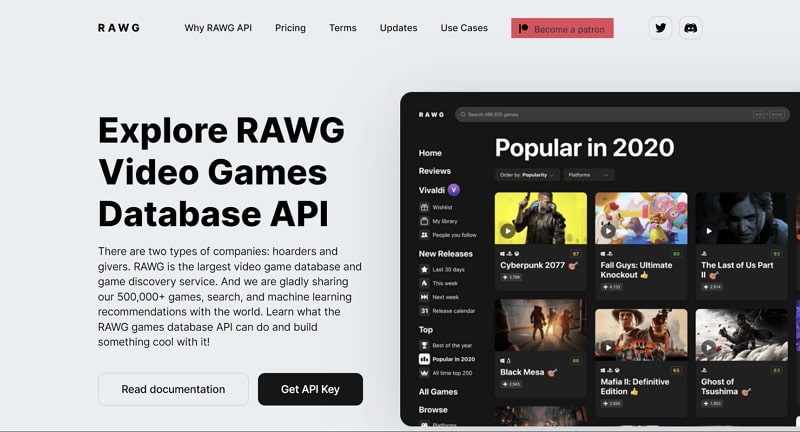
Referred to as a gaming database platform, RAWG is a special video game API that stores and provides information about different games. Thus, users can search for game titles, descriptions, platforms, ratings, release dates, and much more. The developers who are looking to build gaming database applications, RAWG could be a valuable assistance for them.
Other game-related information like catalogs, genres, screenshots, and trailers is also possible to locate. All you need to provide is a source of input as an attribute, and the system will begin collecting relevant game information for you. The integration process is simple, easy, and convenient. Not forgetting, RAWG comes with cross-platform data.
Pros:
- Access to a vast database of games, developers, and platforms.
- Provides detailed metadata and reviews about games.
- Offers free access to extensive game data.
Cons:
- The free tier may have usage limits and restrictions.
- Information may not always be up-to-date or accurate.
- Advanced features and higher usage tiers may require payment.
7. Steamworks API
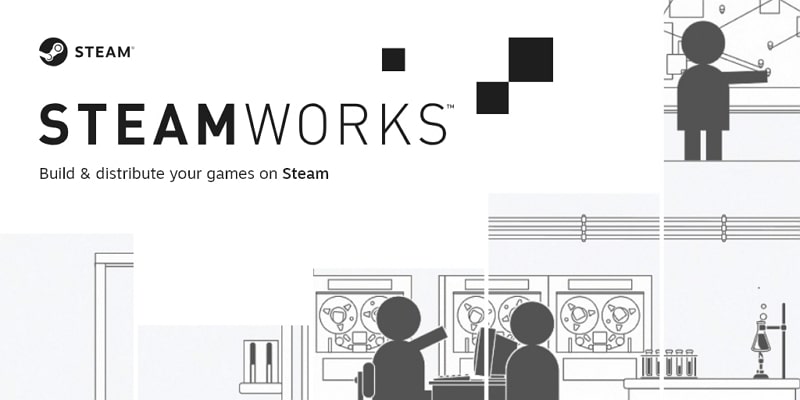
Extend gaming functionalities to the next levels by integrating Steamworks API into existing games. The leading company behind this API is the Steam gaming platform. Thus, developers can make their games more entertaining with features like leaderboards, multiplayer matchmaking, in-game purchases, customized character styling, achievement unlocks, and more.
The availability of Steam Cloud service allows for saving gaming data on the Steam servers. Henceforth, a gamer will be able to access their gaming data from any device within any network. There is also an option to add community interactions by which gamers can utilize chat support, gaming profiles, etc. Games like Dota 2, PUBG, Grand Theft Auto V, Civilization VI, and more use this video game API.
Pros:
- Full integration with the Steam platform, including achievements, leaderboards, and multiplayer.
- Access to Steam’s massive user base for distribution and marketing.
- Includes tools for game distribution, DRM, microtransactions, and more.
Cons:
- Can be complex to implement and integrate with existing systems.
- Ties the game closely to the Steam ecosystem.
- Steam takes a percentage of game sales and transactions.
8. Twitch API
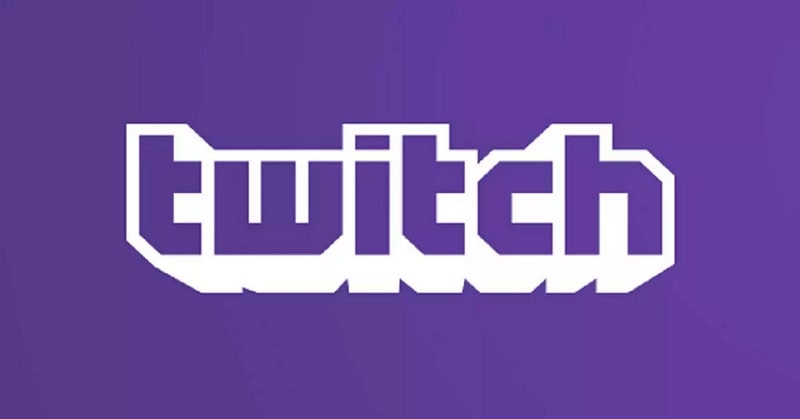
Twitch is a popular live-streaming platform for games. Hence, gamers use it for streaming their live gameplay to display their gaming skillset. Similarly, the Twitch API is beneficial for developers who are looking to add live streaming services to their gaming applications. Meanwhile, by using Twitch API for games, you can also enjoy chat support with the option to create channels.
The availability of analytics support allows viewing the metrics and channel performance. In fact, the Twitch API also enables you to access information on different games like box art, Valorant, Fortnite, and others. For security reasons, Twitch API uses OAuth 2.0 for authentication, which allows developers to register applications first and gain credentials for authorized access.
You may also like: How to Build a Live Streaming App like Twitch
Pros:
- Enables live streaming and interaction directly from the game.
- Allows for deeper engagement with the gaming community.
- Supports monetization through subscriptions, ads, and donations.
Cons:
- Requires effort to integrate and use effectively.
- Dependent on Twitch’s platform and policies.
- Live streaming can be resource-intensive and affect game performance.
9. Gamepad API

With Gamepad API, developers can add unique functionality to gaming applications that allow them to access information about connected gamepad devices. The information could be about the type, id, or state of the gamepad. Meanwhile, user input data like button presses, trigger inputs, and stick positions of analogs could be determined during games.
For games involving the use of gamepads, this gaming SDK is essential. Automatically, developers can make more functional games with extensive gamepad features. Meanwhile, there’s cross-platform support, by which users can use this API on multiple devices. Integration with web-based gaming applications is also possible. Generally, racing games, fighting games, and arcade games can be made using this API.
Pros:
- Provides native support for game controllers in web applications.
- Works across multiple browsers, enhancing accessibility.
- Improves user experience for games requiring precise control.
Cons:
- Not all browsers fully support the Gamepad API.
- May lack advanced features found in native game controller APIs.
- Requires additional coding and testing for consistent performance.
10. Unreal Engine API

Discover wider possibilities to enhance gaming functions with Unreal Engine API. By integrating this API for games, developers can make their games more interesting and special. After all, there is the availability of tools and technologies that allow process game development by adjusting rendering, physics, network, graphics, and kinematic animations.
The audio sources are also adjustable through attenuation and spatialization effects. Therefore, the audio playback is easily controllable. With the available visual scripting interface, game logic, and storyline could be established. The interface is simple, with components, widgets, and elements. The games that were developed using Unreal Engine API include Street Fighter V, Batman: Arkham series, Mortal Kombat 11, and more.
Pros:
- Known for producing stunning visuals and high-fidelity graphics.
- Includes tools for everything from animation to physics.
- Supports a wide range of platforms including PC, consoles, mobile, and VR.
- A visual scripting system allows for rapid prototyping and development.
Cons:
- Can be difficult for beginners to learn.
- Requires powerful hardware for optimal performance.
- Royalty fees for commercial products can be significant.
Final word on Game API
As the gaming industry continues to evolve, the right tools and APIs are essential for developers to create immersive, engaging, and high-performance games. From real-time communication with ZEGOCLOUD and community building with Discord to comprehensive game development suites like Unity and Unreal Engine, each API offers unique features that cater to different aspects of game development.

Whether you are looking to enhance player interaction, streamline development processes, or monetize your games effectively, leveraging these top game APIs in 2025 will undoubtedly provide you with the resources and flexibility needed to succeed in a competitive market. By carefully selecting the APIs that best fit your project requirements, you can bring your creative vision to life and deliver exceptional gaming experiences to players around the world.
Read more:
FAQ about Game API
Q: What is an API in gaming?
In gaming, an API (Application Programming Interface) is a set of tools and protocols that allow different software components to communicate. APIs in gaming enable features like player authentication, data storage, leaderboard updates, and real-time interactions within games.
Q: Do online games use APIs?
Yes, online games heavily rely on APIs to connect with servers, manage player data, process transactions, and enable real-time gameplay features, such as multiplayer interactions and social sharing.
Q: How to create a game API?
To create a game API, start by defining the core functions you want, like player data management or score tracking. Then, choose a backend framework (e.g., Node.js or Python), design the endpoints, implement data storage, and secure the API with authentication and authorization protocols.
Q: What is a game mode API?
A game mode API provides developers with functions and settings to control different modes within a game, like single-player, multiplayer, or time-limited events. This API allows flexibility in setting rules and configurations for each game mode.
Let’s Build APP Together
Start building with real-time video, voice & chat SDK for apps today!









